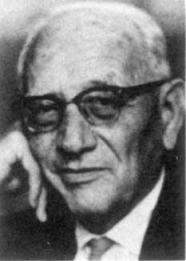
George Pólya (December 13, 1887 - September 7, 1985, in Hungarian Pólya György) was an American mathematician of Hungarian origin. He was born in Budapest, Hungary, and died in Palo Alto, USA.
He worked on a great variety of mathematical topics, including series, number theory, combinatorics, and probability.
In his later days, he spent considerable effort on trying to characterize the general methods that we use to solve problems, and to describe how problem-solving should be taught and learned. He wrote three books on the subject: How to Solve It, Mathematics of Plausible Reasoning Volume I: Induction and Analogy in Mathematics, and Mathematics of Plausible Reasoning Volume II: Patterns of Plausible Reasoning.
In How to Solve It, Polya provides general heuristics for solving problems of all kinds, not simply mathematical ones. The book includes advice for teaching students mathematics and a mini-encyclopedia of heuristic terms. It was translated into several languages and has sold over a million copies. Russian physicist Zhores I. Alfyorov, (Nobel laureate in 2000) praised it, saying he was very pleased with Polya's famous book.
In Mathematics of Plausible Reasoning Volume I, Polya discusses inductive reasoning in mathematics, by which he means reasoning from particular cases to the general rule. (He also includes a chapter on the technique called mathematical induction, but that technique is not his main theme.) In Mathematics of Plausible Reasoning Volume II, he discusses more general forms of inductive logic that can be used to roughly determine to what degree a conjecture (in particular, a mathematical conjecture) is plausible.
Some quotes:
"How I need a drink, alcoholic of course, after the heavy chapters involving quantum mechanics. (This is a mnemonic for the first fourteen digits of ?, the lengths of the words are the digits)"
"If you can't solve a problem, then there is an easier problem you can solve: find it."
Selected works:
How to Solve It. A New Aspect of Mathematical Method (Princeton, N.J.: Princeton University Press, 1945);
Georg Pólya-Gábor Szegõ, Aufgaben und Lehrsätze aus der Analysis (Berlin: Springer, 1925, new editions: 1945, 1954, 1964, 1970-71), Vols. I-II; Translations: English, 1972-76; Bulgarian, 1973; Russian, 1978; Hungarian, 1980-81.
Mathematics and Plausible Reasoning (Princeton, N.J.: Princeton University Press, 1954, 2nd ed. 1968)
Links:
Tibor Frank: George Pólya and the Heuristic Tradition
Pólya-Burnside counting theorem
Hilbert-Pólya conjecture
Books:
G. L. Alexanderson, The Polya picture album (Basel, 1987),
George Pólya, Master of Discovery, 1887-1985, Harold and Loretta Taylor, Dale Seymour Publications, 1993;
The Random Walks of George Pólya, Gerald L Alexanderson, MAA, 2000
Biography:
Australian Mathematics Trust
http://www-gap.dcs.st-and.ac.uk/~history/Mathematicians/Polya.html
http://george-polya.biography.ms/
Autorithy: